S. Scott Whitaker's Blog, page 19
August 24, 2013
Indie Author Spotlight: Talisha Harrison
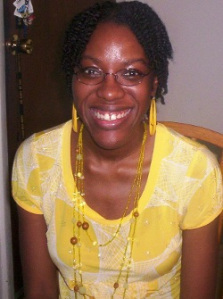
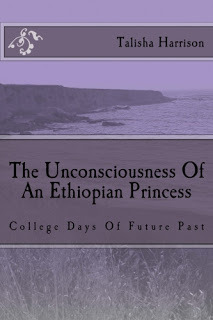 Indie Author Spotlight:
Indie Author Spotlight: Field Recordings will continue to spotlight indie authors, established authors, and up and coming talents. This is a evolving process. Ideally, the interviews will focus on craft, revisions,and the process of writing. It's a lifestyle, writing. This week we welcome Talisha Harrison, poet, and author of The Unconsciousness of an Ethiopian Princess: College Days of Future Past. Links to Harrison's work is peppered throughout. I encourage you to explore.
Name: Talisha Harrison
Pen Name: I usually go by my real name but I also go by Tali Adina.
Most recent title published: The Unconsciousness of an Ethiopian Princess: College Days of Future Past
Where do you write? On my bed, at work, while I’m waiting in the doctor’s office, for the most part anywhere as long as I have a writing materials, otherwise I’ll write it in my head and hold onto it until I can write it down.
What are your rituals with regards to writing (ex: Must have tea, a cat on the lap, etc) :
I must be comfortable and I have to have something to drink (usually water) in my Spider-Man cup.
Describe your writing process:
I don’t really have a process per say. If I have an idea I’ll write it down and then flesh it out a little bit. Sometimes I’ll create an outline. If it’s a poem I just write it.
What do you when you begin to revise? What's the first thing you do during that process?
I read over what I wrote first. Sometimes I revise while I’m still writing. I check for grammatical errors and see if what I wrote makes sense. I’ll leave it alone for awhile and come back to it and write something that sounds better.
When revising, how many drafts do you go through before you feel comfortable with the final product?
It varies every time. I know it’s at least two drafts but it could be more especially if it’s a story.
As a poet, whose music, or voice, sometimes do you hear as you write or revise?
I hear a lot of voices and they’re diverse. I hear my ancestors (and there’s a lot of them and they’re diverse as well), I hear all genres of music especially rock. I hear the voices of the oppressed, those who have had their heart broken, those who are cynical about the world and life in general. I hear those who are depressed, those who are antisocial, those who are anger about the injustices in the world. I also hear the voices of those who are kids at heart, those who seek adventure, who have hope, who are creative, and have a big imagination.
How would you classify your poetry? Are you a lyric poet? A Romantic? A Surrealist?
To be honest, I can’t classify it. My poems are about a lot of different things so I couldn’t just pin it as one specific thing. If I had to classify it I would say that my poetry is a little bit of everything.
What poets are you currently reading?
I just finished reading Nikki Giovanni’s Love Poems. I also follow other poets online who aren’t well known yet.
What poets/poems do you strongly recommend a reader to discover?
My favorite poets are Edgar Allen Poe, Emily Dickinson, and James Baldwin so anything by them. I would also encourage readers to read poems not only by the well-known but also by the not so well known. Attend a local poetry open-mic in your community and hear poems by your neighbors friends, and strangers you don’t know.
The contemporary American poetic tradition is elegy, do you discover elegiac qualities among your own writing as a whole? Are you a poet of loss?
To be honest, I really don’t know. I write about my experiences and my observations of the many things that I’ve and heard. Some of my experiences and observations have been painful so I guess I could say that I am.
Where does your inspiration come from (music, film, other books)?
I’m inspired by my experiences and observations of the world. Music is also very important to me, it’s a part of my life. I listen to it on a daily basis, and I chant at synagogue at every Saturday. I enjoy film, I’m no film expert but I do enjoy a good movie. I love the action and adventure, I enjoy the drama and suspense, the creativity and imagination. That applies to books as well. Overall I love music, film, and books which make you stop and think about things. The ones that make you question and be curious about something are my favorites.
Explain how your local and regional environment influences your writing, your process, and your product (in other words, how does your reality intersect with the worlds that you create?):
As I’ve said before, I use my personal experiences as well as my observations of my surroundings to write stories and poems. I’ve lived in Florida for most of my life and I’ve had good and bad social interactions (mostly bad) of different kinds (racism, bullying, etc.), so you’ll see those experiences in my writing. I have some comic book stories that I’m working on that are set in the Central Florida area. Basically, the experiences that I’ve had, the things that I’ve read about or seen on the news, the conversations that I’ve had with people or that I’ve overheard, the neighborhood that I’ve lived in since I was in fourth grade (and desperately want to move out of), etc. All of these things good and bad leak into my writing in some way.
You have to invite three authors to dinner, who are they? Why?
Octavia Butler: She was one of the few African-American sci-fi writers. I see a little bit of myself in her. I was recently introduced to her work and I’m currently reading Imago, the last book in the Lilith’s Brood aka Xenogenesis trilogy. I would love to hear her thoughts and tips for writing and discuss with her race, sexuality, gender, religion, social progress, and social class.
Rabbi Aryeh Kaplan: Another who past away too soon, he was one of the most effective, persuasive, scholar of Judaism. He was an original thinker and though he died at an early age, he wrote a lot of books. I have a couple of his books and I would love to discuss with him many topics and hear what he had to say from a Jewish perspective. He was also known for his intimate knowledge of both physics and kabbalah so I would talk to him about that.
Stephen Turnbull: History is one of my favorite subjects and I love reading about the good, the bad, the ugly and the horrible. I think it’s important to learn from the past ALL of it. I enjoy reading his historical books about samurai in medieval Japan. So I would just pick his brain about that time period and ask him questions about it.
Favorite title (you wish you had come up with):
I have two: Do Androids Dream of Electric Sheep? and Something Wicked This Way Comes
Line you wish you wrote:
I have two: A screaming comes across the sky. —Thomas Pynchon, Gravity's Rainbow and
There was a boy called Eustace Clarence Scrubb, and he almost deserved it. —C. S. Lewis, The Voyage of the Dawn Treader
Book you did not read in high school but now have read and have an appreciation for: And why:
The Metamorphosis by Franz Kafka
It’s such an intriguing work and it baffles me how we don’t know why Samsa transforms.
The Hobbit by J.R. Tolkien
We only got to read a small part of this story and I read it after I saw the film this year and I loved it. It’s a book that I will definitely read to my children (if I have them) one day.
Favorite words:
If you mean a quote then I would say “Momento Mori” which means “Remember that you will die” it’s my favorite because it reminds me not to waste each day and cherish the good as well as the bad because you can learn and grow from both.
Least favorite words:
If you mean a quote then I’ll have to say “I’m the goddamn Batman.”
Advice you would like to pass on to other writers:
Write. Write about everything, don’t put limits on your writing. That saying “the sky’s the limit” isn’t true because above the sky is space. And though space has an end, it’s enormous and vast, so space is truly the limit and since it will take a long time to reach the endpoint, you’ve got a lot to work with and discover. Also don’t be intimidated by your writing and don’t rush either.
What you would discuss with your pet if your pet could talk:
I would like to know if they like the name I gave them. I would also want to know how they feel and what they feel. I would ask them why they do certain things. If they like their food, what are their thoughts on the world, if they enjoyed the music that I play.
You can connect with Talisha Harrison at Twitter, Smashwords, and Goodreads.
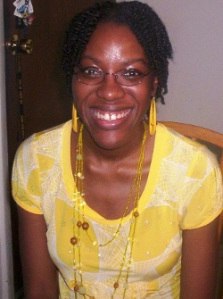
Published on August 24, 2013 03:00
August 23, 2013
We Didn't Start the Fire
"20 Arson Fires" one of the Accomack County Arson poems was published earlier this month, and even won a non-cash prize contest. Woot. Raise the roof. You can read it here.
Facebook friends, by the end of August, all of the Book Critic links, poetry links, small press news, etc. will move to my Facebook author page. Be patient if this kind of promotion drives you nuts--it drives me nuts. I hate talking about myself--but it's part of the process and I have to suck it up.
Field Recordings devotees, more indie author spotlights to come. A wide range of styles, cultures, and perspectives will be represented.
Facebook friends, by the end of August, all of the Book Critic links, poetry links, small press news, etc. will move to my Facebook author page. Be patient if this kind of promotion drives you nuts--it drives me nuts. I hate talking about myself--but it's part of the process and I have to suck it up.
Field Recordings devotees, more indie author spotlights to come. A wide range of styles, cultures, and perspectives will be represented.
Published on August 23, 2013 08:08
August 16, 2013
Indie Author Spotlight: J.J. DiBenedetto, Speculative Fiction Author
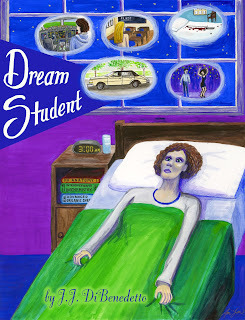
Field Recordings welcomes J_J_DiBenedetto to the internet wilds of the Eastern Shore. A Virginia resident, and author of the Dream Series, and fan of Mark Helprin's Winter's Tale (which is required reading in my house). This is the first of many author spotlights to open up a dialogue about the writing process, writing and publishing in general, and the influences that make writers tick. All are welcome. Please be kind if you comment.
The book trailer for his first novel is below the interview, along with blurbs of his books. Links are peppered throughout the interview, but the majority of them are below the Q&A.
Note: Speculative fiction is the genre I pegged on DiBenedetto, it is the broadest umbrella term for work that engages the speculative: the what if?
Also of note, DiBenedetto revises in a similar way as the Welsh poet Dylan Thomas, who enjoyed writing in his shed, working on a line until it was done, often three or four drafts of a poem, needling the line until it fit.
Pen Name:J.J. DiBenedetto
Most recent title published:”Waking Dream” (book #5 in the Dream Series)
Where do you write? At my computer, in my bedroom. But I’m thinking about the books all the time and noodling away with new ideas. My characters are having conversations in my head when I’m on the subway or walking to work, etc.
What are your rituals with regards to writing (ex: Must have tea, a cat on the lap, etc) I put on music, that’s the main thing. Always opera or classical, and always something familiar. I don’t want something that’s new and could be distracting to take me out of my writing.
Describe your writing process: Usually I just start writing with only a vague sense of where the story needs to end up (for Dream Student, there was the initial idea: what if you could see other people’s dreams…and that quickly led to seeing crimes committed in those dreams, so that you’re the only witness and you’ve got nothing to go to the police with, so you have to investigate yourself). I begin with something “everyday” that my main character would be doing, and then weave the main plot into that. “Dream Child” begins with Sara heading to a medical conference, an ordinary part of her job as a physician. Her supernatural dreams quickly intrude (and her daughter turns out to be able to see them, too) and that sets off the main story.
I don’t outline in detail; usually it’s enough to have a general idea of what the ending will be, and the important things that need to happen on the way there. I’m usually surprised by at least one or two subplots in each of the books.
What do you when you begin to revise? What's the first thing you do during that process? I revise as I go. After I finish each chapter, I go back over it two or three times and then send it off to a good friend who’s a fellow writer and a critique partner. Every three or four chapters I go through everything again from the beginning. By the time I get to the end, I’ve been over the whole book several times already.
When revising, how many drafts do you go through before you feel comfortable with the final product? I’d say it works out to two or three drafts, by the time I’m finished.
Where does your inspiration come from (music, film, other books)? All of the above. The initial idea for the series was simply the idea of seeing other people’s dreams. And Sara’s world was basically my college, and my dorm (the first book is set at a very thinly-veiled version of my college, and it takes place in 1989-90, when I was there). So my personal life was partly an inspiration.
My personal beliefs are also a big inspiration for what happens in the books (particularly the last two books in the series).
Explain how your local and regional environment influences your writing, your process, and your product (in other words, how does your reality intersect with the worlds that you create?): My reality is a big part of my books – as I mentioned, the first book (and the second) are set at a fictionalized version of my college. The house Sara’s in-laws live in is modeled after my cousin’s house; her apartment when she moves to Washington, DC is in the same building I actually lived in for a year or two, and so forth. I borrow liberally from my real life to fill out Sara’s world.
You have to invite three authors to dinner, who are they? Why?
Stephen R. Donaldson, because he’s one of my favorite writers ever. Mark Helprin because he wrote hands down the best novel I’ve ever read, “Winter’s Tale.” And Brian Herbert, because I want to ask him if the awful “Dune” prequels he wrote were really based on his father’s work like he publicly swears, while looking him in the eye to see if he’s lying about that or not.
Favorite title (you wish you had come up with): “The Touch of Your Shadow, The Whisper of Your Name” (sadly, the book didn’t remotely live up to the cool title!)
Line you wish you wrote: Basically every other line in “Winter’s Tale”. How about “what the hell. It’s the quick turns that mean you’re alive.”
Book you did not read in high school but now have read and have an appreciation for: And why: C.S. Lewis’ Narnia (not exactly a high school book, but it’s the closest answer I’ve got to the question). There’s so much truth – and beautiful writing – there, it was a shame to have skipped it for so long.
Favorite words: Beauty, love, smile (see a theme there?)
Least favorite words: Most curses (f**k, sh*t, etc.) They’re really ugly words. I use them VERY sparingly, when they really fit what’s going on, but I don’t really like to.
Advice you would like to pass on to other writers: Be patient, and remember that the work doesn’t end when the book is done – it’s just beginning!
What you would discuss with your pet if your pet could talk: Funny you should ask that. I and my wife already have full conversations with our cat and imagine what her answers might be. I would definitely ask her why she likes to sit in the dirty clothes hamper or the dusty back of the closet instead of the nice, soft, expensive cat bed we bought for her, though!
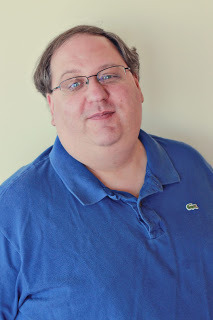
Biography:
J.J. (James) DiBenedetto was born in Yonkers, New York. He attended Case Western Reserve University, where as his classmates can attest, he was a complete nerd. Very little has changed since then.
He currently lives in Arlington, Virginia with his beautiful wife and their cat (who has thoroughly trained them both). When he's not writing, James works in the direct marketing field, enjoys the opera, photography and the New York Giants, among other interests.
The "Dreams" series is James' first published work. You can find him on smashwords. His personal website is here. You can also get a sample of the audiobook here.
His Amazon page is here.
You can also find him on ebook on fire, a website for independent authors.
Blurbs provided by the author, or author's agent.
Blurbs:
Dream Student
What would you do if you could see other people’s dreams? If you could watch their hidden fantasies and uncover their deepest, darkest secrets…without them ever knowing?
Sara Barnes is about to find out. She thought that all she had to worry about was final exams, Christmas shopping and deciding whether she likes the cute freshman in the next dorm who’s got a crush on her.
But when she starts seeing dreams that aren’t hers, she learns more than she ever wanted to know about her friends, her classmates…and a strange, terrifying man whose dreams could get Sara killed.
“Dream Student” is the thrilling first installment of the Dreams series.
***
Dream Doctor
“I didn’t expect to be woken up by someone I don’t know dreaming about killing somebody. I thought I was done with that once and for all…”
But Sara’s not done with it. As if adjusting to life as a newlywed and starting medical school weren’t difficult enough, she’s started seeing the dreams of everyone around her, again. Before everything is said and done, those dreams might destroy Sara’s hopes of becoming a doctor, wreck her marriage and even end her life…
“Dream Doctor” is the thrilling second novel in the Dreams series.
***
Dream Child
"I would give anything to take this away from her. I would gladly go back to having the nightmares myself – the very worst ones, the ones that had me waking up screaming in a pool of my own vomit – rather than see Lizzie go through this..."
As a resident at Children's Hospital, Sara can handle ninety hour workweeks, fighting to save her young patients from deadly childhood diseases. But she's about to be faced with a challenge that all her training and experience haven't prepared her for: her four-year-old daughter has inherited her ability to see other people's dreams...
"Dream Child" is the suspenseful third novel in the "Dreams" series.
***
Dream Family
"Why is this so hard for me? Why am I having so much trouble? Why do I feel so helpless, so hopeless? What the hell is wrong with me?"
After tangling with murders and mobsters, not to mention medical school and three years of residency, Sara thought she could handle anything. And then the police show up without warning at her new office and arrest her for a crime she can't possibly have committed. Sara's confidence, and her grip on reality, is shattered during one terrifying night in jail.
Now, the very dreams that have endangered her life and driven her to the edge of madness may be the only thing that can help Sara find herself again...
"Dream Family" is the powerful fourth novel in the "Dreams" series.
***
Waking Dream
“Oh, God! We can hurt each other. Whatever we do to each other in the dream, we’ll do it to ourselves for real…”
When her own dreams are visited by a mysterious woman in a red dress, Sara realizes she has something she never expected: a counterpart, someone outside her family who shares her talent to see other people’s dreams.
When the woman in red keeps showing up in other dreams as well, leaving ruined lives in her wake, Sara knows she has something she never imagined: a nemesis.
Now, Sara must track the woman in red down in the waking world, before she’s forced to fight for her life in her dreams…
“Waking Dream” is the exciting fifth novel in the “Dreams” series.
Published on August 16, 2013 00:00
August 15, 2013
New feature: Independent Author Spotlights, or Blog Tours for indie writers. Seeking new writers to feature,

Publishing is changing, and we are all running to catch up. Field Recordings will begin a new feature, on a regular basis, that will spotlight independent authors, established authors, poets, and fringe writers.
This is not a review of their work, but a platform for writers to seek new readers, and discuss their writing process with other like minded individuals.
If you would like to be featured here, please contact me via goodreads, facebook message, or through a comment in this website. We'll chat. I'll send you some interview questions. You send me pics and links. We'll have internet tea. I'll put up a post. You tell everyone you know about it.
For those of you already in the loop, this process is called a blog tour.
The inaugural spotlight will feature J.J. DiBenedetto, an independent author, and writer of speculative fiction
The first spotlight will be posted tomorrow, Friday, August 16th. Until then, ciao.
Published on August 15, 2013 07:35
August 14, 2013
Don't leave your device, you can donate a buck and help non-profits raise money for the literary arts
You can donate a buck to help artists via paypal.
The literary arts are at a crossroads of sorts. Nobody buys poetry or drama (when was the last time you even browsed for poetry, eh?). E-books have changed the landscape. Indie writers can now produce a product that rivals the big publishing houses. Grant money wanes. There are artists competing for money in every nook and cranny in America. Don't forget about Kickstarter...All month I'm writing and blogging for Tupelo Press to raise money for a matching grant that will help a) give writers a job b) give publishers a job c) help small presses gain new audiences d) bring cool writing projects to light. But I can't do it without your help.
You can donate money, without leaving your seat. You can buy some books, early Christmas gifts perhaps, or not. It's up to you. Please join me at Tupelo Press 30/30 project.
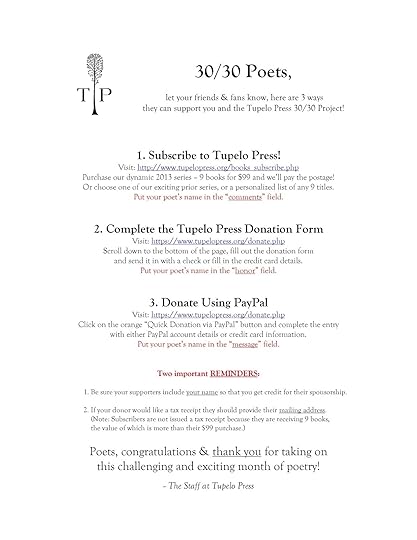
The literary arts are at a crossroads of sorts. Nobody buys poetry or drama (when was the last time you even browsed for poetry, eh?). E-books have changed the landscape. Indie writers can now produce a product that rivals the big publishing houses. Grant money wanes. There are artists competing for money in every nook and cranny in America. Don't forget about Kickstarter...All month I'm writing and blogging for Tupelo Press to raise money for a matching grant that will help a) give writers a job b) give publishers a job c) help small presses gain new audiences d) bring cool writing projects to light. But I can't do it without your help.
You can donate money, without leaving your seat. You can buy some books, early Christmas gifts perhaps, or not. It's up to you. Please join me at Tupelo Press 30/30 project.

Published on August 14, 2013 09:10
August 10, 2013
Using Paypal, you can help raise money to match grant funds for the literary arts.

Without leaving your armchair, sofa, or desk, you can donate a dollar or two via paypal to help Tupelo Press, a non-profit organization, raise money for a matching grant. Grant money, as you know is in danger of getting cut. From the high school levels and beyond, arts organizations have to fight for grant money. Regional, community, and local arts agencies are no different. Tupelo Press, from MA, is raising funds to match a grant that will allow them to continue excellence in publishing.
Why small presses? Why Tupelo Press? First, Tupelo has a grant in the shute, and needs matching funds to get the projects started. Second, we're talking poetry (mostly) here, which does not translate well electronically. The publishing world is changing, but poetry doesn't read well on your kindle, nook, i-pad--all the lines get mashed up. Third, we're talking about the writer the big publishing houses turn their noses up at. We're talking about different faith traditions. We're talking about translations from different cultures and projects involving the unknown writer and well known writer.
To support Tupelo Press, I'm writing a poem a day for the month of August to raise awareness and funds for a matching grant that will put writers to work.
Right now Tupelo Press has specials that will help them meet funding goals (before kickstarter--this was the old school kickstarter--we'll give you some cesh (sic) if you raise the rest of the cesh (sic)--for your cultural project). From the Press.... nine books for 99 bucks (that's a book for you and x-mas presents for eight other people), Russian translations, photo albums, anthologies of poets talking about faith. It does not take much time, nor money to help raise money. Please visit them at http://www.tupelopress.org/ and check out their exciting titles.
Again, you can also have me write a poem for you. Make a donation and you can direct my pen, and my breath.
You can check out the progress of the 30/30 poets here.
Published on August 10, 2013 05:58
August 1, 2013
Help me raise money for the literary arts!
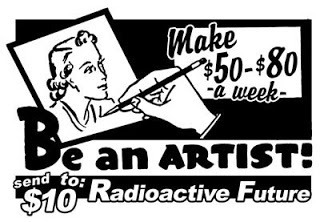
All month long I'll be writing poems, slicing lines, crafting rhymes--all to help Tupelo Press raise money for the literary arts. Grants are not being funded as they once had been, and small presses are looking to new ways to raise money for projects. Tupelo Press is hosting writing-thons. Today I have to step up to the starting line. I'm running for them, and small presses everywhere.
Make a donation, which you can do in any number of small ways, and I'll write a poem for you. You let me know what you want it written about, and if there is a style you prefer. I'm taking commissions, baby, hells to the yeah.
Please consider donating. It doesn't cost that much and you can walk away with a book, or a subscription for your generosity, not to mention a commissioned poem.
HOW TO DONATE:
The three ways you can donate to a worthy literary cause:
1. Subscribe to Tupelo Press!
Visit: http://www.tupelopress.org/books_subs...
Purchase our dynamic 2013 series – 9 books for $99 and we’ll pay the postage!
Or choose one of our exciting prior series, or a personalized list of any 9 titles.
Put your poet’s name in the “comments” field.
2. Complete the Tupelo Press Donation Form
Visit: https://www.tupelopress.org/donate.php
Scroll down to the bottom of the page, fill out the donation form
and send it in with a check or fill in the credit card details.
Put your poet’s name in the “honor” field.
3. Donate Using PayPal
Visit: https://www.tupelopress.org/donate.php
Click on the orange “Quick Donation via PayPal” button and complete the entry
with either PayPal account details or credit card information.
Put your poet’s name in the “message” field.
Two important REMINDERS:
1. Be sure your supporters include your name so that you get credit for their sponsorship.
2. If your donor would like a tax receipt they should provide their mailing address.
(Note: Subscribers are not issued a tax receipt because they are receiving 9 books,
the value of which is more than their $99 purchase.)
Published on August 01, 2013 05:19
July 31, 2013
Please help me raise money for poetry, and the literary arts! Poetry Month Long Marathon
For the month of August, Tupelo Press has asked me to write a new poem a day for 30 days. During the month you can donate money towards keeping small presses alive. Small donations count! I have to raise $350 bucks for the month. It's a marathon, not a sprint.
I'll also be taking commissions for the month of August. Make a donation and I'll write a poem about whatever you want.
You can check out the innovative fund raiser here.
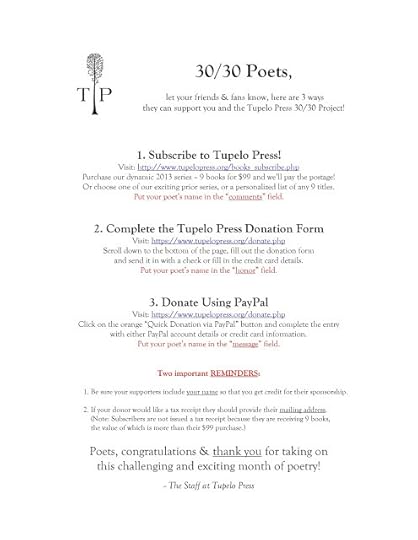
I'll also be taking commissions for the month of August. Make a donation and I'll write a poem about whatever you want.
You can check out the innovative fund raiser here.

Published on July 31, 2013 15:41
July 29, 2013
Revision Diary: Quotidian revisited. After Viewing Micah Watterson's One-man show "Roughly Hamlet"
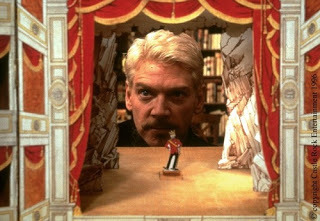
From a poem a day project I did in 2011. A response to a visual work of performing arts. A kind of Ekphrasis.
Micah Watterson is a former student of theater at Northampton High School, where he was active playing numerous roles in my early days as a theatre teacher on the Eastern Shore. Ambitious, eager and thoughtful, he has done numerous Shakespeare roles since playing Romeo in my NEA funded grant project that turned Romeo and Juliet into a rock musical for teens. (As Romeo, the first we see of him is a busker strumming “No Woman. No Cry."—Juliet, played by Raven Bonniwell, sang “Walking After Midnight")
His one man show Roughly Hamlet inspired this:
when skull and humor combine
then the divine shall bless our lips
and seal our embrace and offer kisses
to small nations who still believe.
When spine and heart divine
a way through the avenues
of the broad city, spiking out like a heart attack,
the girl aloof, hiding in the back
of the theatre, the romance on stage unspooling.
The final product looks like this:
Hamlet to Ophelia
Humors combine in the divine blessing
our lips, O lovely girl of the north. When I laugh
you are knotted up inside me
and when I cry
you are a flower under a glassy lake.
There is more between us than memory.
Think of the small nations who still believe
in a way through the avenues
of our broad city,
spiking out like a heart attack, these ways
after ways,
after ways
of getting lost or in gutter trouble.
How many border crossings can I take?
To have my ear is to have the gears of my heart,
you can tune me with your throttle voice,
your working girl clatter,
your sharp teeth.
In a matter of minutes you could be gone.
You are the girl aloof, hiding in the back
of the theatre, the romance on stage unspooling.
In a matter of minutes you will be gone.
It is like that with us, too, separate in our misery.
The trouble is when we cross paths
I am never sure how to feel,
it’s as if you are already gone, out of mission,
out of mirth for love, and family, and ambition.
Notes:
The context of the speaker had to be clarified. There was obvious enlargement of the text, playing with themes and images of the play. What I remember so well from Micah’s show was the feeling of isolation of Hamlet, he was literally all alone there entire show, which made me as an audience member feel so much sympathy for Hamlet. Anyhoo, Hamlet and Ophelia’s scenes are some of my favorite moments in the play, any version, and this poem is a response to it, a translation if you will.
I tried to play Hamlet’s moods with the line breaks, allowing, I hope, for some circuitous verbal sounds to mimic the theme of deception in the play, as well as Hamlet’s “antic disposition."
Published on July 29, 2013 09:56
July 13, 2013
Scott Whitaker reads "Steam City. Sunday Morning." from The Black Narrows
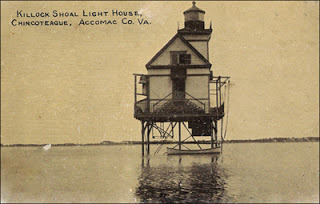 A promotional reading of one of the poems from The Black Narrows. I also discuss some of themes of the book, and the steampunk inspiration behind some of the imagery. You can find more information on the Key Poetry Series here.
A promotional reading of one of the poems from The Black Narrows. I also discuss some of themes of the book, and the steampunk inspiration behind some of the imagery. You can find more information on the Key Poetry Series here.
Published on July 13, 2013 08:05



